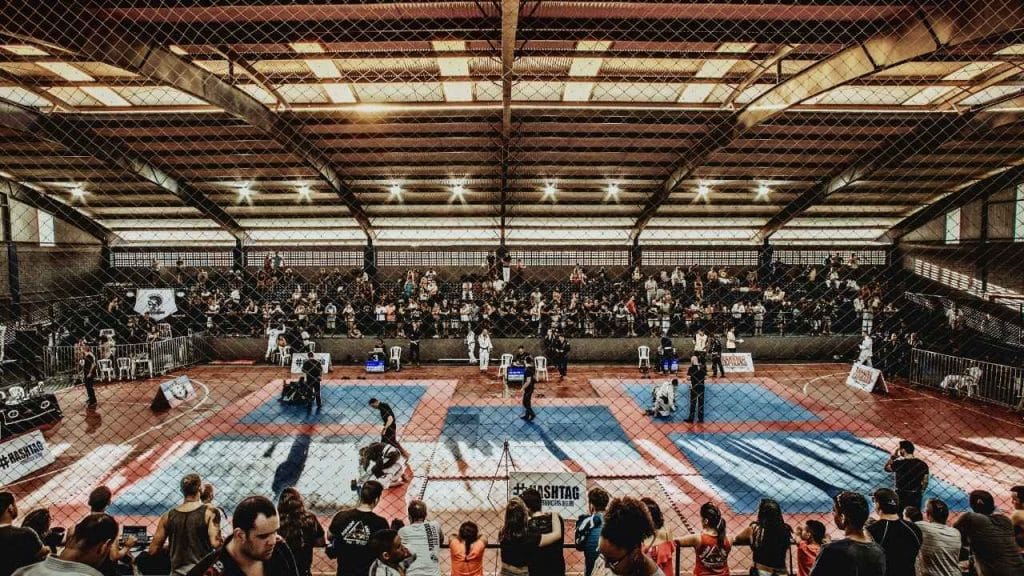
BJJ competitions have specific rule sets that you must follow. Failing to follow these rules will either result in point deductions or even an immediate disqualification.
Let's go over some of the biggest penalties that are included within an IBJJF regulated BJJ competition. Here are seven ways to get points deducted or disqualified in your BJJ Match.
We'll go through each of these BJJ fouls and explain why they're illegal, and give examples of each BJJ foul.
Each rank has specific guidelines for what techniques they can and can't do in competition. By committing one of these BJJ fouls, you will either get a point deducted or most likely be disqualified.
Some of you that are new to Brazilian Jiu-Jitsu may not know what is considered an illegal technique. Here is a list of illegal techniques that are considered BJJ fouls at each belt rank.
We added these two BJJ fouls together because they are the most obvious rules within BJJ competitions. You cannot slam or strike your opponent in any way in a BJJ match.
There are no point deductions for committing these BJJ fouls. If you commit one of these illegal moves, you are not only disqualified from your match but you're out of the competition altogether.
Some of you may not know what is considered "slamming" in a BJJ competition and need it explained to you. Here are some examples of slamming that will get you disqualified.

A uniform DQ will get you disqualified before you even step on the mat. BJJ events regulated by federations like the IBJJF or UAEJJF have uniform checks before each division starts.
An official looks over your uniform to see if your uniform meets the requirements within the rules. If there is any irregularity with your Gi, rashguard, or shorts, you will be disqualified before your match.

The IBJJF has stringent uniform rules that you must abide by, or you'll be instantly disqualified. Here are the uniform requirements listed within the IBJJF rulebook.
BJJ Gis
Stalling is a BJJ foul that is pretty self-explanatory. It's where a competitor is not actively trying to get to a better position or attempt a submission.
Generally, you're giving a warning for the first instance of stalling. But if you keep stalling, you will get points deducted or even be disqualified.
There are a few different actions that are considered stalling. Here are a few examples of these BJJ fouls.
Holding guard: If you have an opponent in your guard and you're not actively going for a submission or sweep, that is stalling.
Staying in guard: It's also stalling if you just stay in an opponent's guard and not actively try to pass.
Not engaging your opponent: If you're not actively engaging your opponent during a match, you will be penalized for stalling. Examples of this are not engaging an opponent on the ground or not going for a takedown.

When you're in a BJJ competition, you agree to a code of conduct when you sign up to compete. Any act of unsportsmanlike conduct will result in immediate disqualification. You will not only lose the match but will be removed from the tournament altogether.
There are a few different actions that are considered unsportsmanlike conduct. Here are a few of the main examples.
During a match, you are not allowed to leave the fight area for any reason. Committing this BJJ foul will result in point deductions and even disqualification if done multiple times.
This rule deters competitors from escaping submissions or takedowns by leaving the fight area. If a competitor does leave the mat, they will be deducted a point, and the match will restart in the center.
The infamous knee reap is the last BJJ foul that we'll cover. This is one of the most criticized BJJ fouls by everyone, from athletes, coaches, and fans.
A knee reap is where your outside leg crosses your opponent's centerline and across their knee. This BJJ foul is an immediate disqualification for anyone who does a knee reap, even by accident.
Although for adult brown and black belt divisions, the knee reap rule was removed when heel hooks were permitted. For all other ranks, the knee reaping rule is still enforced.
Committing any of these seven BJJ fouls will undoubtedly result in point deductions or even disqualifications. Be sure to remember these seven BJJ fouls and study federation rules like within the IBJJF before you compete. That way, you'll know exactly what you can and cannot do in a match and won't get points deducted or disqualified.
If you enjoyed our article on seven BJJ fouls that will get you disqualified, share it by hitting the button below. For more articles on BJJ and grappling, click here.